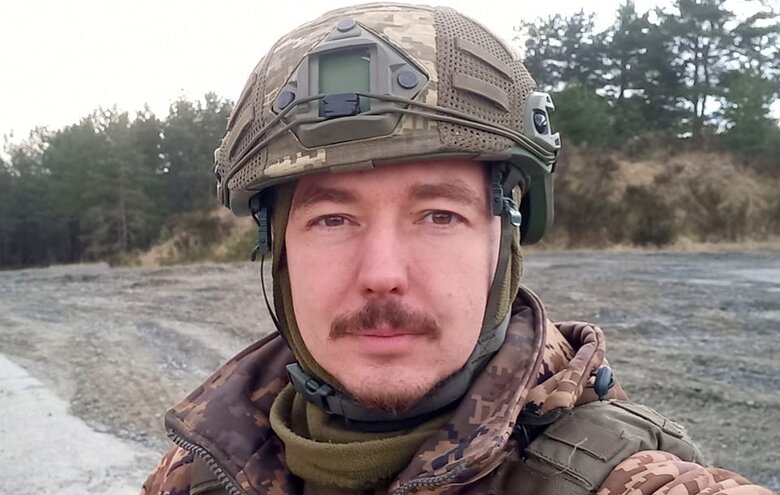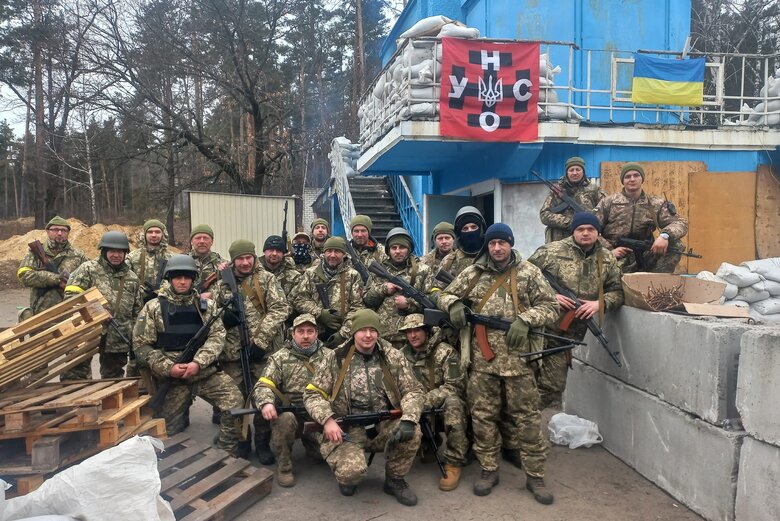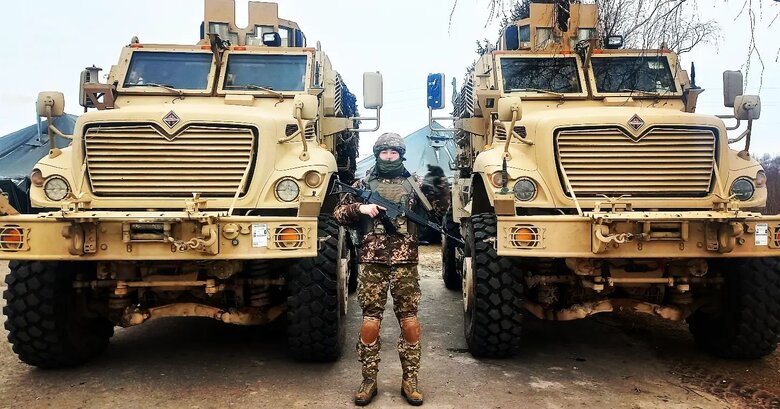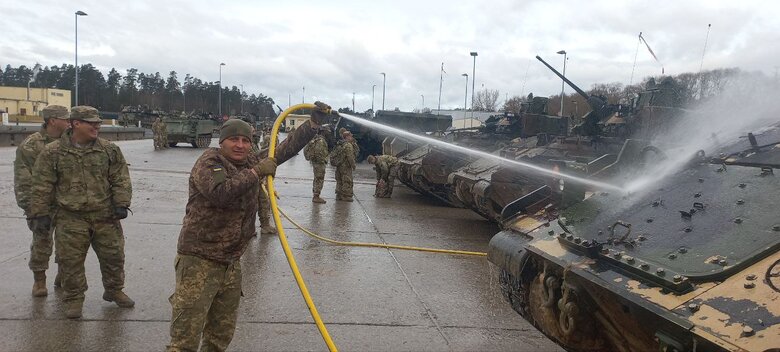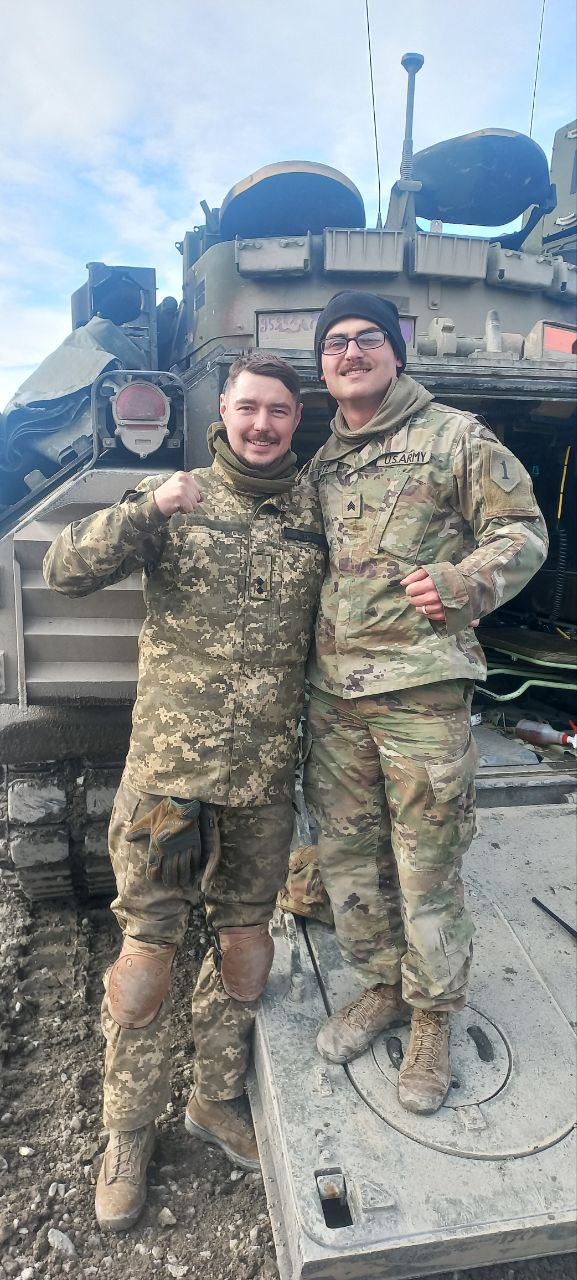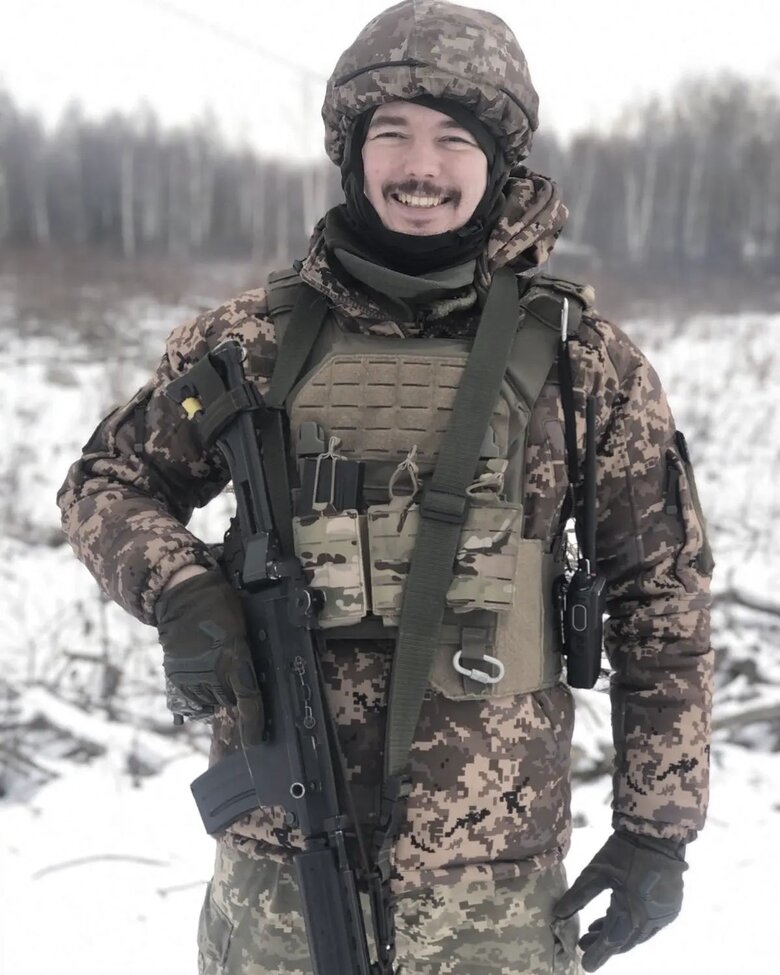Company commander of the 47th Brigade Mykola Melnyk: "The Russians knew our routes of advance, and everything was flying there - the 152nd, 120th, and Grads...
The lawyer, who since 2014 joined the volunteer fighters in Avdiivka from time to time, in 2022 joined the 47th newly formed brigade and lost his leg during the first assault of the unit on the Zaporizhzhia direction in June 2023.
Only a month ago, Mykola stood up on his now-only leg again. A 38-year-old man was blown up three times, so he was seriously injured. Not only was his right leg torn off, but his left leg was also torn off, and both his arms and face were burned. Therefore, the treatment was quite long, until the Kyivan was finally able to move in a wheelchair, and then start walking with the help of a walker. Mykola dreams of a prosthesis, but the stump should also heal well, form... And the right foot needs to be restored – the rehabilitation specialists of the NextStepUkraine centre are currently working with it. And this is pain and constant medical "findings" – either the wounds are inflamed, or the nerve needs to be stitched... And there is no end in sight.
"IN THE 47TH BRIGADE, PEOPLE REALLY PASSED THREE COURSES OF A YOUNG FIGHTER"
- At the beginning of the full-scale offensive, you were...
- ... commander of a rifle platoon. We defended the Kyiv. In June 2022, my platoon became an anti-aircraft missile platoon. By the way, they had good success, even shooting down operational and tactical UAVs. Then the commander of the 47th regiment, Vania Shalamaha, invited me to the position of company commander. I agreed.
- Did you know each other before?
- We had mutual friends, let's say, along the nationalist line. His father is a nationalist. I try to put myself in this category, although now it is sometimes discredited. Vania saw potential in me. In principle, during the defence of Kyiv, I hope I have proven myself normally, as well as our platoon.
- Until 2022, you were always with volunteers, going to war. What is your military experience and with whom did you work?
- I cooperated with the 1st Assault Company. How I cooperated - I was a subordinate I came and got to work, performed the tasks that were given to me. I had to wash the floor - I washed, I had to carry mines - I carried mines, I had to do something else - I took and did. I did not challenge any order, not a wish, nor Tenhis, nor Da Vinci, nor any of my fellow commanders. Because, frankly, in this hierarchy, I was not in a very high position, but it suited me because I: a) believed that I was defending Ukraine; b) I helped my friends - I should. And that's right. It was this experience that helped me to quickly form a platoon when we had to defend Kyiv. I knew what to do, I knew what war was, I understood the challenges. And, in principle, he understood what to do with the soldiers so that they simply did not run away. We all remember what a mess it was in the first days of the defence of Kyiv, excuse me, individual rifle platoons, and even companies simply fled from their positions. Why? Because the euphoria ends the moment you are given an assault rifle and told: "Go there, defend the sector." We also had it in every way. But we followed every order. In the battalion we were in, our platoon was considered one of the best.
- What did you start with in the 47th Brigade? I understand that you studied abroad with them.
- When I was called in the 47th, they said that it would be a new company that I could form myself. But as a result, I have already come to the formed company. It was even trained in western Ukraine. I come, they tell me: "Here are 110 people, accept." I ask: "How? I was told to form a company." — "It's already created, catch." What to do — I accepted.
- Who was there, people of what professions? Was there someone with military experience?
- There were several so-called ATO soldiers, but there were completely different people among them. There were those who just sat for a while in the blindages. They weren't going to storm anything at all. Their main task, as I saw, was to f#ck up. We then broke up with them. But there were people who really passed the ATO. For example, Petia Kolodii became a company technician. A person, firstly, in his place, secondly, brave, thirdly, you understand that a person fought and knows what to do. This is a person who could understand any engine, get parts. And when we were hit, he covered me, shouted: "Commander, I'm here!" I made him move away, jump into the trench. But he's really brave, I respect him.
In general, the force was very diverse. There was a person who frankly said, "I have a lot of children. I will not go to battle. And in general, I have enuresis - here is a medical note." What are you going to do here? There were those who did not always understand where they had gone. They were just mobilized, brought in, left, and they didn't understand what was happening either.
But most had a high motivation. People came from big businesses. I asked the question: "Why? You were doing well." - "I think it's right to defend Ukraine." It was on highly motivated people that I tried to rely on.
- Tell us about the preparation, because your brigade has been preparing for almost the longest time, has gone through various arrangements. How do you estimate that people were basically taught how to fight?
- The preparation was too long, because at first, it was, as I remember, a reconnaissance battalion. Then it became an assault regiment, later a mechanized brigade. The tactics of the assault regiment and the mechanized brigade are completely different. Therefore, people had to be retrained. Was the preparation long? Yes, there was. But are people to blame for this? No. The soldier is not to blame for the fact that the command constantly changes plans.
- Well, it's just good that the preparation took a long time, people learned...
- You see, most people "burned out", and you just forced them to find fire in themselves again. Constant communication, constant explanations of why this happens. Understand: first you are an assault regiment and learn to storm houses. Then they say: you are a mechanized team, and they give MaxxPro, which you see for the first time in your life. They are given grenade launchers, it seems to be MK-13, and you do not understand how to put them. And then they take everything from you, and give "Bradley", but you also need to go to study on them. That is, there were actually three learning processes, people went through three recruit trainings. Of course, they "burned out". And I am very happy that people in my company did not lose this fire, and when it was necessary to perform a task, they did. I will say that a very big responsibility was on the platoon commanders, who somewhere understood my logic, somewhere came to conclusions themselves. And when they said, for example, "You will storm at night," people absolutely consciously trained at night, put tags on themselves and learned to walk in trenches — at night. Even after studying in Germany, we continued to study. We didn't let the soldiers relax.
"Okay, what about you?" You knew that your friends, while you were learning, were fighting. How did you motivate yourself that the day would come when you would be useful?
- It was difficult to understand that friends are fighting, and you... But you understand what responsibility you have. You are a company commander, you have 119 personnel. If you start to whinge now, that's all, your company will collapse. Difficult. Well, okay. Take the ball and play...
- Is Bradley really a reliable car? What impression did she make on you?
- Americans have a completely different approach to education, not sovietesque. How is training on an infantry fighting vehicle carried out in the Ukrainian army? "Kids, here's an infantry fighting vehicle, but we won't start it, because there is no diesel fuel. And here is the gun, but we will not shoot, because there is no ammunition. And in general, do not touch anything with your hands, because it will fall apart. Let's better practice landing, and that's it." That is, in fact, the soldier knows how to land from the "infantry battle grave" (because the BMP-2 is a combat grave), and that's it. This is how the training process takes place in our army. And in America: "Here is "Bradley." And you don't run out of diesel fuel, as well as ammunition. On the day we fired 74 shots, drove normal kilometers. The Americans were not afraid. On the first day, they explained where everything was, and on the second day, we got into the Bradley. And each of the crew (the infantry studied separately, the crews - separately) traveled five to ten kilometers. On the first day of driving, I was already back off at night, refueling the truck. And they always asked, "Do you want more?" I said, "I want to." We had both night shootings, and day shootings, and round the clock, and we slept in cars. Again, until we learned until every mechanic understood what was required of him, until every gunner-operator, every commander of the machine disassembled and assembled that Bushmaster in seven minutes... I got out of it for the eighth time. Unfortunately, when I couldn't, I reacted very emotionally, so the American soldiers would say, "Oh! Mykola, holy f#cking pit of hell!" But from the eighth time I succeeded, I understood how it was done. Until you learn how to do everything automatically, you are not going anywhere. You don't do the following exercise. There was an instructor next to everyone, an interpreter next to each. It is impossible not to learn how to use modern machines.
In the photo: Petro Kolodii, a fighter of Mykola's company, washes "Bradley". After any exercises, the vehicles must be thoroughly washed – the Americans did this themselves and demanded this from our fighters
- Did you have that feeling, oh, this is a cool car? We will definitely win on them now!
- Yes, there was a feeling that this was a cool car. And there was a sense of confidence. You learned so much about it, you understood what is the point, what breakdowns can be, and how to eliminate them. Again, how is company tactical training conducted? On the first day, you learn what you need from you, but here you have a huge field, here you are "Bradley" - you learn to maneuver. And you learn to maneuver platoons, companies, you communicate with every vehicle commander. There were those who worked on the "bekhs" (BMP-2. - ed.), then they said, "Oh, it's bombastic!"
- At that time, did you already know that you were being prepared to conduct a powerful assault in some area, that a big bet was placed on you?
- I realized this at the company exercises, and I made sure of the battalion-tactical ones. Because the fact that we stormed at the company-tactical and battalion brigades reflected both the relief of the Kherson region and the "dragon's teeth". The Americans troubled themselves and did everything we needed to storm. The only thing that was not foreseen was the mined landings. During company-tactical and battalion exercises, we constantly used this, going through landings to the rear (the Americans played the role of the Russians). I was proud of my guys, who actually walked six or eight kilometers through the forest, exposing the enemy's observation posts. It was very interesting. Next to each company commander, there was the same company commander – an American, and you had to ask him questions. If you were not shy, everything was explained to you. I kept asking questions. My "Captain Jack"...He even had an eye twitching from me, but unless I fully understood the task, I did not leave him.
In the photo: Mykola with an American instructor during training in Germany
We spent the night on those towers very often, and he explained to me for the twentieth time how to use "Bradley" correctly. Again, there were men who fought in the Persian Gulf, and they explained how they opposed the tanks there. All this was interesting. Basically, I "tortured" everyone very harshly. Kris was next to me, he was already dead... He had very good English, and the two of us constantly "pecked to death" Americans to understand everything. I think the problem with several companies of the brigade, the officers of the brigade was that instead of pecking to death their instructors in the same way, they went to bed. This is my opinion.
"I TOLD MY SOLDIERS: IN A DIFFICULT SITUATION YOU WILL NOT FIGHT FOR UKRAINE — YOU WILL FIGHT FOR EACH OTHER"
- When did you arrive in your area of responsibility and receive the task? When did you get the order to go on the assault?
- Initially, we were relocated to the Zaporizhzhia region, to the south, it was in mid-May. There was already a corps planning meeting, and all company commanders were invited. There they began to prove to us what would happen next. That is, in May, I perfectly understood what needed to be done, I understood the tasks of my company. He gathered platoon commanders and detachment commanders and began to explain his actions to everyone. We were even able to model the positions we needed to storm, and every night we worked out—worked out—worked... We strained all our financial resources, bought night-vision devices because they were lacking, even though we were better equipped than the other brigades. There was a very strong affinity. Each soldier understood his task, everyone could clearly say what he was doing at each stage.
- And the load of responsibility is that the whole country is looking at you, that now you will reach Mariupol, and we will win... Didn't it put pressure on you?
- Listen, I have been in this life for a long time... I understand what a pathetic chos is. And I understand: what is planned may not go according to plan. And I told my soldiers a simple thing: it will be difficult, and then you will not fight for Ukraine — you will fight for each other, for who is on the right, on the left, behind, in front. And I will fight for you as long as I can. And I explained quite calmly: my friend Lys (Fox-ed.) (Yevtushenko Dmytro Sanych), the best officer I have ever seen, is the head after me. Honestly, I think he is very promising. Dmytro Sanych "falls " – his friend Kris (Rest in Peace), Kris "falls" – Professor (Rest in Peace), he "falls" – another command... Everyone in the company understood the transfer of command of the platoons, everyone understood the transfer of control of the detachments. Yes, it went through a certain misunderstanding on the part of the soldiers: well, what else do you want from us? We have been studying for nine months, we are already applying tourniquets in our sleep... What more do you want?
- When was the first assault you went to? What is your first experience?
- The first experience - we were late for the assault... According to the plan, we were supposed to attack immediately after the 3rd battalion. But due to failures in planning, we, mildly speaking, were three hours late, so, of course, we could no longer help. It was already morning, and in the afternoon it was very difficult to fight the Russians because of their superiority in artillery, aviation, UAVs. Therefore, we began to clarify the tasks in the landing. These, taking into account the experience gained by the 3rd Battalion, had been adjusted. Now we had to go not 12 kilometers, but only six. But from what we've already heard from the 3rd Battalion and others... You understand the army is a big collective farm, everyone began to ask each other: what, how, where? Hearing that and how it was, I explained to the commanders of the platoons and detachments their tasks, promised the obstacle-clearing units that we would cover them as long as the Bushmasters were firing. So it happened. We covered them, and they did their job, due to this we still managed to capture certain positions, repel counterattacks and, technically, calmly prepare for defense. The Russians could not force us out with counterattacks.
- What date did this happen?
- June 9. We seized positions, repulsed the first counterattack, began to dig in. I was wounded, control passed to my friend Lys (Fox-ed.), he continued to command the company, and he controlled quite well.
We accomplished the task that was set out for us to do with minimal losses. When other companies already had "two-hundredths", most of the machinery was knocked down, and I only had ten "three-hundredths". The dead came after I fell out. But there were objective reasons for this because the Russians simply "mixed" our positions with black soil with artillery.
"A MACHINE GUN BULLET BROKE MY RIGHT LEG, I STARTED JUMPING ON MY LEFT — I STEPPED ON AN ANTI-PERSONNEL MINE"
- How did you blow up, how was it?
- Yes... We called "Bradley", who was supposed to evacuate the first wounded. I saw that it was about to drive across the minefield, jumped out of the landing and started waving my hands to tell it where to go. I felt the shots, saw my leg fly away, was surprised... Most likely, it was a large-caliber machine gun, because there were tanks on the enemy position of Real, and they worked. I started jumping on my left leg, stepped on an land-mine, fell on my back. Apparently, the "petal" (PFM mines-ed.) worked, because during the period when we captured and repelled the first attack, there was a massive remote mining. In the sky, every ten meters, there was an explosion, an explosion, an explosion... Because of that, the sky turned half-black, I didn't even see this in the movies. A detonation went off, turning me on my stomach. Something worked under my chest too - it turned me up again. I have a good body armor vest, so the blast wave went through my hands. After all these explosions, I fell, lay down and look around: my hands were burned. I understood that I couldn't do anything now. But there was a friend of Piro near me, I shouted: "Piro, save!" Piro ran through the minefield to save me. And saved. In a minute or two, he applied four tourniquets to me, somehow tied that leg with paracord, and pulled it.
- Was she nearby? So you were trying to save a torn off leg?
- She was hanging onto a piece of muscle, hanging on. While this was happening, I shouted to him to tell on the walkie-talkie about the wounds, the transfer of control. I don't know why I didn't lose consciousness. Until I heard that everyone understood about the transfer of control, I did not calm down, I pecked him. On the one hand, he bandages my leg, and on the other, I shout to him: "Transfer control!" During this time, "Bradley" saw where the minefield was, drove into the passage. This car evacuated me. So they took me out pretty quickly. Then our battalion medic, friend Kylym (Carpet-ed.), worked well.
- You said that two minutes before the explosion, your comrade advised you to fasten the collar on your bulletproof vest...
- When we saw that powerful remote mining was going on, friend Piro said: "Commander, let's pull your collar up." My Kevlar collar was rolled up, it was pulled to me in two or three minutes. During my detonations, it was torn in shreds and tatters. I kept it because it had debris. They were even in tourniquets, which I had on detachable equipment. They were everywhere. The Kevlar collar, groin protection, the armor saved me, I survived.
- How long did the company stay in that position? What tasks did she continue to perform? And how successful, can you say?
- I am very proud of my company, soldiers. I am as pleased with myself as possible because I taught them how to fight properly. I am as pleased as possible to understand who will be able to command after me the best. I made the management decisions that were required of me. And the fighters did not just repel counterattacks at this position, being semi-encircled. They constantly continued to storm it... They have not lost control, they have not lost their combat capability. They then stormed "Real", stormed "Barcelona", Robotyne. That is, the fighting continued.
- Why did you have such Spanish names of positions - "Benfica", "Real"?..
- I don't know, maybe there was a football fan in the corps. But all positions were named after football teams. My main task was, you know what? Capture "Shakhtar" and "Dynamo", passing through "Real".
If you saw a video of an enemy company dying in four minutes, then this is exactly the position of Dynamo. That's why I'm very proud of my company, they are amazing. But very many losses could have been avoided if the orders had not been formally carried out. I don't really want to criticize our government, our commanders, but sometimes it seemed that soldiers were not protected. There were cases when it was necessary to hit positions, but they said: "Paladin – expensive shells"... People also died because of this. Because it was necessary to work with artillery, but they did not work for some unknown reason. And because of this, my boys died.
- How long did it take to fight for Robotyne? I think you've been following it closely.
- Wait: the task to take Robotyne stood on the first day. That is, the battles for the Robotyne were fought from the eighth of June until the moment it was taken.
- Your guys went there too.
- Of course. They came in, made ambushes, and did a very good job. Our 4th Company, despite everything, with gritted teeth, continued to go forward. Despite the losses and wounded. Many of my soldiers have five concussions. Friend Fire had been wounded numerous times during this offensive and kept coming back. Well, now he is already exhausted enough, he will rest for a long time. Three injuries only in the battles for Robotyne... And so many others.
- It is obvious that the Russians in this direction were preparing for attacks. They were not afraid of the "Leopards" and did not run as expected.
- The whole plan of a great counterattack was based on simple things: the Muscovite sees "Bradley", "Leopard" - and runs away. All. "Boys, you clear up them there!" But there is no active protection on the Bradley! "Don't be a pussy! It's good as it is." And the tankers never fired from the "Leopard"! "Keep cool, they worked on the T-72!" Despite the fact that all the guys were awesome, I just fell in love with our tankers.
- Some tanker accidentally came to you...
- It was cool at all! The T-64 on trawls was supposed to work with another company. But then there was a certain managerial mess. I am handed a T-64, I work with it, enter into coordination. It is necessary to storm it - it is taken from me, given to other boys, whom I see for the first time in my life and who do not understand the task, they are simply freaked out of being here. And they "worked", it seems, in the very first minutes of the battle with an ATGM. We keep fighting, roll back, roll over, keep maneuvering. And then I was on the radioset: "Friend Frits, what should I do?" I say, "Who is this?" - "I am so-and-so," - I understand that this is a tanker who has to be with another unit. "So you're supposed to be..." - "No way, I'm with you, I'm tailing you..." - "My baby!" - I rejoiced. - "Well, now we're going to get things done! There's the first platoon, go around, get ready." Certain elements of chance, which were due to the fact that some of the decisions of senior commanders were not logical in this particular situation, only confused. But thanks to this confusion, I ended up with another "Teshka" on trawls, which paved the way for me to the position of "Benfica". And why it paved – because, technically, the UR worked on this position before, in the first minutes of the battle. We managed to do it, and we just needed a tank to pass through and make a passage again so that the infantry would not be blown up. It's all like some kind of TV series.
Mykola with his brother, who also served in the 47th Brigade
- Is war always chaos?
- Controlled chaos! The main thing here, firstly, is not to go crazy, and secondly, to understand your position in this chaos. And try to subordinate it in one way or another to a common goal and aim. Yes, it was chaos. Some companies ended in 15 minutes because of this chaos, some in 30 minutes, and other brigades even showed "records". My company didn't run out, we had minimal losses. Yes, vehicles were knocked down. I was the first to be hit, the 152nd hit me...
- And Bradley...
- ... "Bradley" withstood everything. The shell hit the right side, the track assembling was damaged. The armor withstood the debris, but the blast wave tore the wiring in the car... The only time the Bradley could not withstand the impact was the work of helicopters, a week later. The Ka-52 hit the cars, and one Bradley detonated. But there are cases when they did not detonate when they withstood such blows. In principle, it is a very reliable machine. This is not a BMP-2 where the entire crew dies, no. The Bradley may be shot down, but the crew survives. And the engine is always running. The driver-mechanic recovers from a concussion, the engine is running - we drove on.
Yes, chaos. In this chaos, it is important not to lose touch with the senior commander. Because you need artillery, you need current orders. And when this stops happening, when the battalion commander's orders are given to you by a battalion sergeant, it's not very good. Because you didn't hear the order to hand over control to a sergeant. And on the walkie-talkie, you definitely hear that it's not your battalion commander who is talking. Again, it is very important that senior commanders understand what is happening on the battlefield. You know, the control system in '47 was so high that I could see where each of my cars was on my tablet. It helped in management, you understood who was where. And the brigade commander understood who was where, and the battalion commander understood. The only thing they did not understand was what was really happening on the battlefield. And the situation was quite simple: ATGMs in each landing. The Russians knew our routes of advance, and everything flew along these routes – the 152nd, 120th, and Grads... And here you go, where are you going to maneuver? Only back and forth, because everything else is mined. And we are...
"I DON'T THINK THERE IS AT LEAST ONE PERSON WHO WANTS TO JOIN THE ARMY, BUT WE ALL WANT TO PROTECT UKRAINE"
- You have been undergoing treatment for the fifth month, renewing yourself. What is the situation with the left leg – is it also very seriously damaged?
- Yes. The "anti-infantry" worked. Unfortunately, due to the fact that my wounds were not treated well enough in Zaporizhzhia, the process of pyopoiesis began, I had to cut off half a foot, although it basically withstood. There were numerous fractures of the metatarsal bones, but the foot is... Due to the large influx of wounded, doctors simply did not have enough time to debride wounds properly. I was debrided for the first time in Dnipro, two days later, when the process of pyopoiesis began and the question of amputation of the left leg arose. But I didn't, and the doctors, thank God, helped me. The leg was saved, but not in its entirety. Well, it's okay, I'm practicing.
- Your arms took a long time to recover, so you could not move on your own...
- I couldn't do anything with them. My arms were torn by an explosive wave, but they stitched them up here and stitched them up there - everything is fine... I can already grab the crossbar to pull myself up. We have good surgeons, they "collect" everything well. Therefore, everything is fine now. But in the early days it was, of course, difficult. You lie there, tied, your hands burned, a pipe in your mouth, only one thought: did your testicles tear off or not... (laughs.) Thank God, I checked with the nurses, they said that everything was fine.
- Not so long ago, you stood on your foot for the first time. How did it feel? How much does it hurt?
- It hurts a lot! Because I've had a muscle transplant on my foot and they've not healed enough yet. But in general, everything is fine, you just need a little more time. I am lucky, because here, in the clinic, there is such a coach who does not feel sorry. I told him: "Don't you dare feel sorry for me!" – and he was amazing: Here's a trapezium, here's a boot to make it easier to walk - let's go!" It hurt, but I left. This is a very significant stage for me. I've had a few of them. The first stage is that you can go to the toilet yourself. This is very important, by the way. The second stage is that you can stand up. I got up on August 17th. And in September, I started walking on one leg with crutches. That's not a bad thing. I still have several surgeries waiting for me: broken nerves, to remove contractures. There is still a long way to go. But I know I'll go. I know that I will have a cool prosthesis, I will be a human terminator. And everything will be fine.
One day a familiar officer called me and said, "Well, come on, recover. There will also be a counteroffensive next year." And I told him: "I don't have enough legs for the next counteroffensive." – "We have to reach Crimea!" – "I don't mind, but I really don't have enough limbs... "Once again, storming the prepared positions of the Russians "head-on" is not a good idea. I really hope that after what happened, we came to conclusions... An offensive is always a loss. But still, I wanted there to be better interaction between the branches of the armed forces, so that we would have aviation, so that we would not be afraid of helicopters
- Do you still want to return to the army? What do you think about it?
- I don't think there is at least one person who wants to join the army. But... We all want to continue to protect Ukraine. Are you asking if I want to join the army? No, I don't want to. Generally. I don't get enough sleep there. Will I go back to protect Ukraine? Yes. In what condition, in what position – I am not ready to answer. Because, apparently, it will no longer be possible to storm the landings.
- Why do you have the call sign Frits?
-Oh... I was first called Fritz by my friend Galician in 2016. And it stuck. I have never hidden the fact that I am half German. You know, I have a family of "anti-Soviet": some were in the "Hitler Youth", others - in the Ukrainian Insurgent Army (UIA). And everyone met in Siberia, from this love my mother was born. That's why it happened. In principle, I am quite bored and methodical when something needs to be done. I think I match my pseudonym somewhere.
Violetta Kirtoka, Censor.NET

